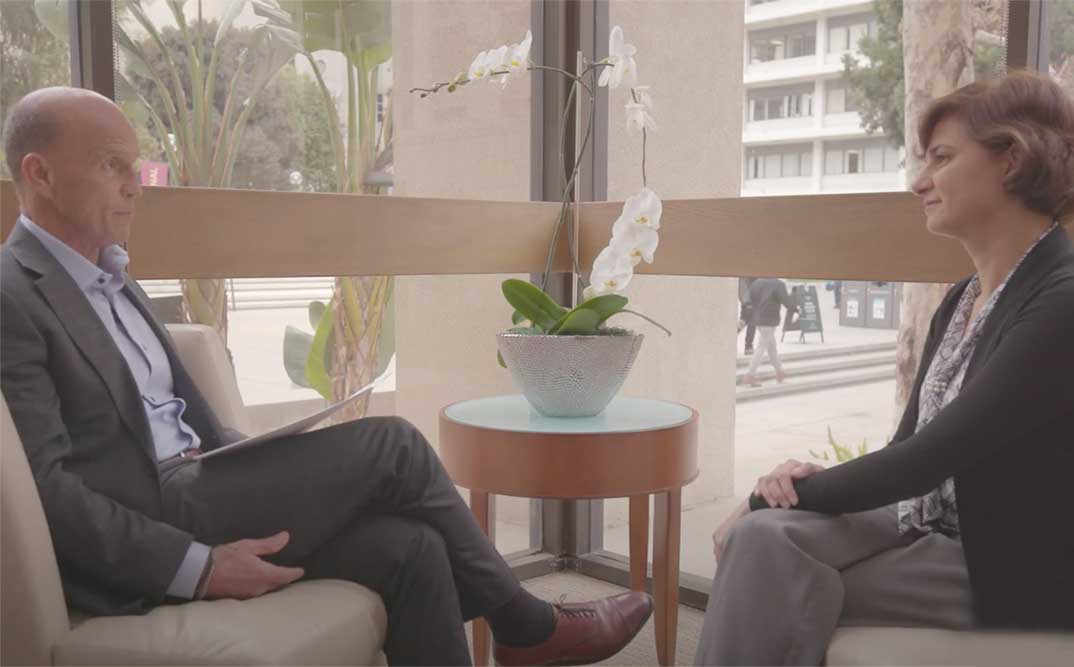
Rod Hanners, CEO of Keck Medicine of USC, talks with the medical director of infection prevention and antimicrobial stewardship at Keck Medicine.
“Conversations with Rod” is a video series featuring Rod Hanners, CEO of Keck Medicine of USC, talking with Keck Medicine doctors about our innovative medical care and research. In this video, Hanners sat down with Neha Nanda, MD, medical director of infection prevention and antimicrobial stewardship at Keck Medicine. Watch the full video below — or read excerpts from their conversation.
Interview Excerpts
What does an epidemiologist do?
Neha Nanda, MD: A health care medical epidemiologist is someone who is responsible for setting up processes, systems and policies in a health care organization, so you can prevent or eliminate any harm that comes from infectious diseases. And this position will typically work with leaders across the continuum. So, you’ll have this person working with administrative leaders, clinical leaders and frontline staff. Ultimately, the hope is that positions like this introduce a culture or sustain a culture where preventing infections and [maintaining] safety is uppermost in the organization’s mind.
How does credibility relate to your role as a medical epidemiologist?
NN: I think credibility is something that’s very difficult to earn. It takes time. And then you have to sustain it. The basis of building credibility, the foundation, is relationships. So, a person who’s a health care medical epidemiologist needs to be a leader, but at the same time, that person needs to be on the front lines. Everybody should see this individual as a peer and a leader.
What’s been the most challenging part of your job this last year [during the COVID-19 pandemic]?
NN: The biggest challenge was the ability to connect the evolving science to policy and the front lines. Next time around, perhaps [another] pandemic is going to take a few years, but there will be an epidemic, a small version of a pandemic. Next time around, we should be prepared to connect the dots between these three pillars: science, policy and clinical work.
Topics
